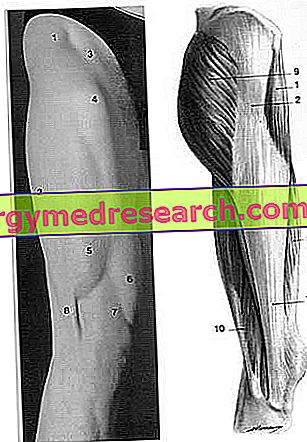See also: Ferrograd ® Ferrous Sulphate
When to hire them
Most individuals do not need an iron supplement, as adequate intake of foods containing it (liver, meat, fish and dried legumes) is usually sufficient.

- female sex;
- heavy menstruation (menorrhagia);
- reduced iron absorption (intestinal steatorrhea, chronic diarrhea, hypochloridria, gastrectomy, use of antacid drugs), celiac disease;
- strictly vegetarian diet or abuse of dietary fiber, such as bran;
- intense sporting activity: athletes engaged in basic disciplines are especially at risk;
- various types of bleeding (nosebleeds, haemorrhoids, ulcers, wounds, hookworms and pinworms, abuse of anti-inflammatory drugs such as aspirin or anticoagulants, hiatal hernia, diverticula, various types of tumors, pneumonia or bronchopneumonia with hemoptysis of blood with cough), kidney stones, neoplasms or inflammation in the kidney or urinary tract, cystitis, urethritis, prostatitis, etc.);
- pregnancy and breastfeeding.
Which iron to choose?
Iron supplements are therefore necessary when the dietary intake of the mineral is reduced, when the body's ability to absorb it decreases or when losses increase. In any case, any evaluation of their usefulness belongs exclusively to the doctor.
The most common supplements contain tablets based on ferrous organic salts (sulphate, succinate, fumarate, gluconate or lactate), to be preferably taken on an empty stomach to facilitate absorption. Some drugs, such as tetracyclines, quinolonics (both antibiotics) and antacids, limit iron absorption and must therefore be taken at least two hours apart.

Attention, the content of ferrous salt in the product (eg 40 mg of fumarate iron) is shown on the label of many iron supplements. This figure varies considerably with respect to the elemental iron content, to which the requirements mentioned in the article refer. For example, as shown in the graph, about 55 mg of iron fumarate or 72 mg of iron sulfate or 150 mg of iron gluconate are required to cover a daily requirement of 18 mg of elemental iron
PLEASE NOTE: to guarantee an octagonal absorption of the iron contained in the integrator, prefer the ferrous salts (iron fumarate, iron sulphate and iron gluconate) compared to ferric salts
Side effects and mode of use
In case of gastric intolerance, iron supplements can be taken at the same time as the meal; eventually, you can also opt for an increase in the number of daily administrations or for a reduction in the single dose, thereby prolonging the duration of oral therapy.
Among the side effects of ferrous supplements there are also several other disorders of gastrointestinal origin, such as diarrhea, constipation, nausea, vomiting, abdominal pain and black stool coloring.
Freely purchased supplements contain lower doses of iron than prescription medicines. Often the mineral is associated with vitamin C (to promote absorption), folic acid and vitamins B6 and B12 (to promote the synthesis and multiplication of red blood cells).
The therapy, which begins with reduced and progressively increasing dosages precisely to avoid the aforementioned undesirable effects, has a rather long duration. Specifically, it must last for three or four months after reaching the normal hemoglobin level, in order to saturate the body's stocks and prevent relapses.
Iron supplements should be kept out of reach of children, as few pills can cause very serious or even fatal effects on the young organism.



